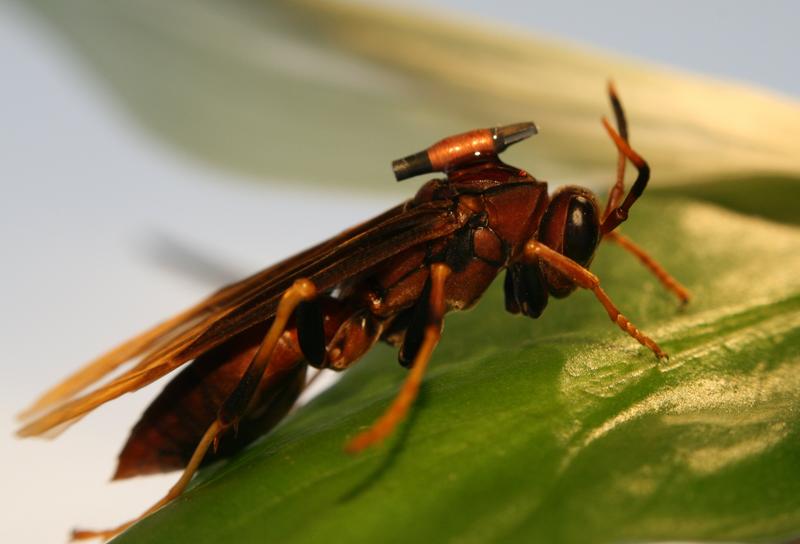ZSL uses RFID tags to study wasps
Scientists at ZSL are using minute RFID tags to study the behaviour of wasps as part of an innovative research project.


Sign up today and you will receive a free copy of our Future Focus 2025 report - the leading guidance on AI, cybersecurity and other IT challenges as per 700+ senior executives
You are now subscribed
Your newsletter sign-up was successful
Radio frequency identification (RFID) technology has thus far been used to track a myriad of inanimate objects, but the Zoological Society of London (ZSL) has gone one step further by using tiny chips to study the behaviour of wasps.
Scientists say they got the idea, which involved placing antennae at the entrance of 33 wasp nests and tagging the thoraxes of 422 female paper wasps, from the way in which Londoners' commuting movements can be tracked using Oyster cards.
The study is the first of its kind and involved collecting data spanning almost 6,000 hours of observation.
The nest antennae logged the tag number of each wasp entering and exiting, enabling ZSL researchers to track movement to try and ascertain what causes the insects to drift from nest to nest.
The findings showed that the wasps drifted between nests at a rate 31 times higher than ever previously recorded, as well as targeting nets inhabited by their close relatives.
"We were very surprised to find out that 56 per cent of the wasps drifted from nest to nest," said Seirian Sumner a ZSL scientist and author of the research report.
"Like the workers in most eusocial insect societies, these drifting wasps do not reproduce themselves, but instead pass on their genes by helping raise relatives. We were excited to discover that they did this be helping on several different nests, rather than just their home nest."
Sign up today and you will receive a free copy of our Future Focus 2025 report - the leading guidance on AI, cybersecurity and other IT challenges as per 700+ senior executives
Maggie has been a journalist since 1999, starting her career as an editorial assistant on then-weekly magazine Computing, before working her way up to senior reporter level. In 2006, just weeks before ITPro was launched, Maggie joined Dennis Publishing as a reporter. Having worked her way up to editor of ITPro, she was appointed group editor of CloudPro and ITPro in April 2012. She became the editorial director and took responsibility for ChannelPro, in 2016.
Her areas of particular interest, aside from cloud, include management and C-level issues, the business value of technology, green and environmental issues and careers to name but a few.
-
 DigiCert continues EMEA partner focus with latest appointment
DigiCert continues EMEA partner focus with latest appointmentNews The channel veteran will lead the digital trust vendor’s EMEA partner strategy as it targets deepen partner connections and new growth
-
 Microsoft patches six zero-days targeting Windows, Word, and more
Microsoft patches six zero-days targeting Windows, Word, and moreNews Patch Tuesday update targets large number of vulnerabilities already being used by attackers
